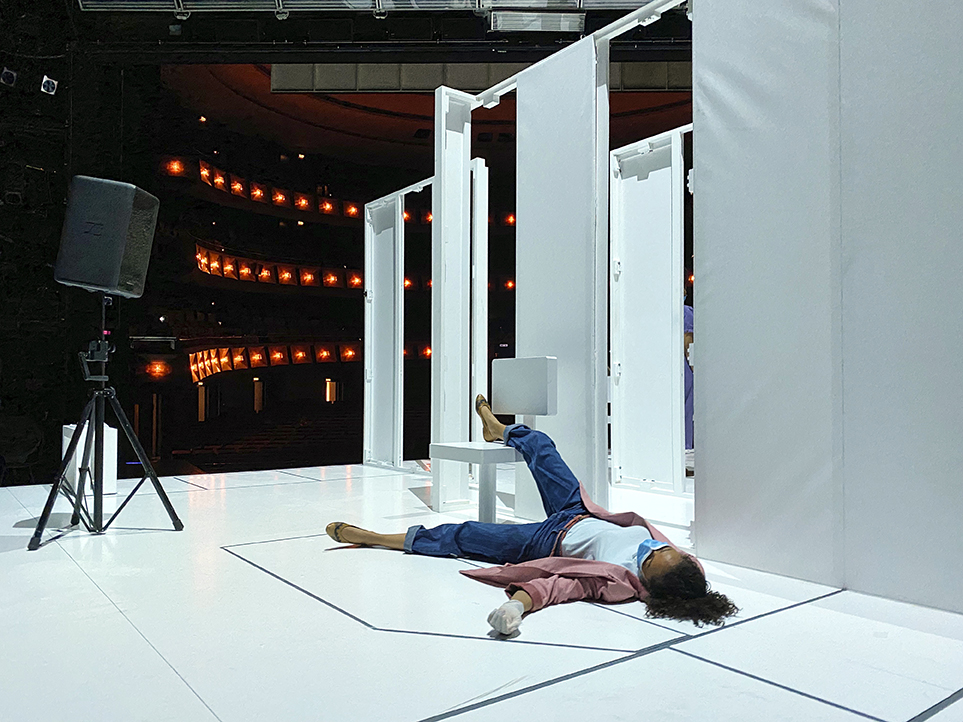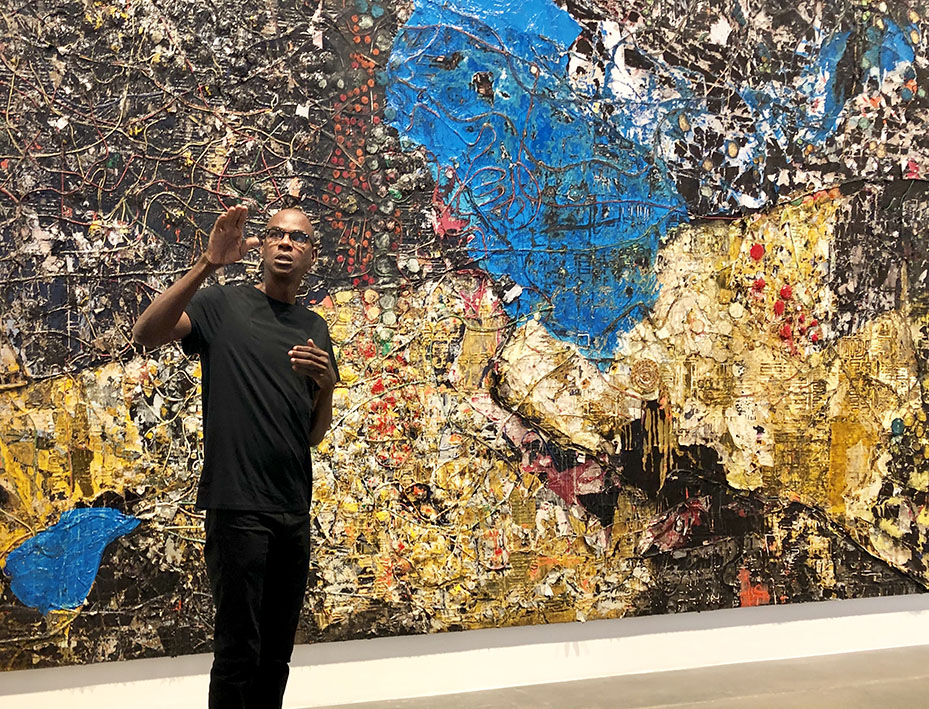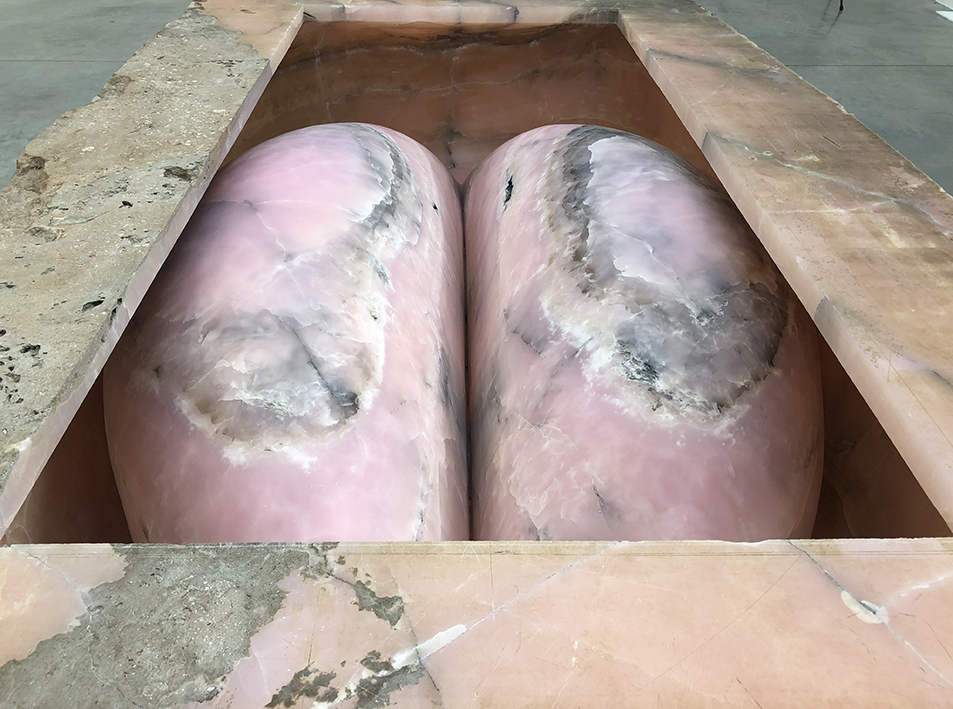
Art Jonas Mekas
An interview with one of the pioneers of the independent and American avant-garde cinema.
Jonas Mekas believes it’s incorrect to call him a filmmaker: “A filmmaker usually has a script, a producer… I have no script, no producer, no ideas”, he told Jon Lanthier of the Film Journal ‘Bright Lights’. Mekas regards himself a ‘filmer’ as he just films his everyday life in which nothing is planned beforehand. Terms such as casting, call sheets, talent and recce (a pre-filming visit to a location to work out its suitability for shooting) are alien concepts in Mekas’s world. In the 1960s Mekas started to film, with his Bolex, interesting situations upon which he stumbled, encounters with friends, and the seasonal changes of his hometown NYC. The diverse footage amounted to a notebook that resulted in ‘Walden’, which became Mekas’s first ‘diary film’. With this new form of cinema, Mekas became one of the pioneers of the independent and American avant-garde cinema. As nothing is planned in Mekas’s films, the results are full of spontaneity, surprise and curiosity about life as it happens. Filming in an impulsive manner seems to resonate with the founders of ‘Dogme 95’, the Danish directors Lars von Trier and Thomas Vinterberg. Following the Cannes premiere of his new film ‘Melancholia’, Von Trier said in an interview in ‘De Volkskrant’: “If you record a scene for the third time, you can see that in the camera movement. It moves in a controlled manner and I don’t like that. The camera has to be curious, just how I watch myself”. At the age of 88, Mekas still cares about – he is even obsessed with – recording moments of real life and catching the essence of those moments. The London Film Festival screened his latest long-form diary film ‘Sleepless Nights Stories’, where Mekas captures encounters with his close friends and acquaintances, among them Marina Abramovic, Yoko Ono, Patti Smith and Bjork. The screening of the film was not the only reason as to why Mekas was in Town: the Lithuanian born filmer also participated in the sixth edition of the Serpentine Gallery ‘Marathon’ series. As the Gallery is located in Kensington Gardens in West London, it made perfect sense to choose ‘Garden’ as this year’s theme. Together with the artist and activist David Ellis, Mekas did a (protest) presentation on the Orvidas Garden, and displayed a unique monumental piece of art which had been neglected and vandalized by the Lithuanian authorities. Next year, Mekas will return to the Serpentine Gallery with a solo exhibition. The next day, after his performance in West London, we meet Mekas at a restaurant with a spectacular views overlooking the Thames. He is wearing the same Borsalino hat that he wore the day before. He speaks slowly, but animatedly. His drive and energy sources have not dried up as he has been working on five feature films over the last year. His age doesn’t consider him to slow down or even consider retirement. “I cannot stop, because I’m programmed, I’m born this way, a machine that cannot stop,” he laughs. Mekas’s prolific nature might scare the living daylights out of his colleague Terrence Malick, who directed six feature films in his 42 years career. By contrast in 2007, Mekas completed the ‘365 Days’ project where he produced one ‘little’ film every day, and uploaded it to his website. Working on five feature films in 2011 may not leave much time to watch other films, but Mekas makes the time to watch the latest movies of friends and relatives: the director Jim Jarmusch, his daughter (who has a small part in Miranda July’s ‘The Future’), the actor Benn Northover and director Harmony Korine. The latter two also feature in ‘Sleepless Nights Stories’ as themselves, just like all the people who feature in Mekas’s film as themselves. Over a glass of Viru beer, brewed in another Baltic state, Estonia, we spoke with Mekas about living in the moment, if there is a role for avant-garde film and why he doesn’t care about criticism of his work. 200%: How did ‘Sleepless Nights Stories’ originate?
Jonas Mekas: After I finished the ‘365 Days’ project I thought what’s next? I had made 365 days, should the next be 365 nights?
I began reading ‘1001 Arabian Nights’, which is a very huge project as it has many volumes. Whilst reading the book I thought to myself maybe I should do a 365 nights project. But then, remembering what challenge it was to make one film every day for the ‘365 Days’ project, I said to myself, no, I don’t think I want to do it again. Reading ‘1001 Arabian Nights’, though, did make me interested in the possibility of telling stories and I began considering “what is a story?”
All my filming is from real life, but I only film when something special takes place – a story happens. When you read Arabian Nights no story resembles the next one and that is part of the excitement. What ties them up is that they’re in the same book. Someone collected all these stories and put them together in one book. The stories in ‘Sleepless Nights Stories’ are also not connected at all, each one is very different but what ties them together is that they are on the same video cassette.
200%: You say you only film when something special happens, but how do you know when something special is about to happen?
JM: I never know what is coming. I just do whatever I am doing, wherever I am. But when I see that something intense is happening, I start filming. It’s all automatic, it’s my second nature, and it’s all very unpredictable, improvised as it happens.
200%: You don’t you miss the beginning of the special moment?
JM: Yes, I miss the beginning but I capture the essence of the moment. You miss so much in life anyway, who cares. What you get, you get.
200%: As you film when something interesting occurs, you must be very aware of living in the moment. Do you have a view as to why people in the Western World seem to not live in the here and now but more in the future or past?
JM: I think that people constantly live in the moment, but only they don’t record that moment. Like the people sitting over there [Mekas points at a couple sitting at the window] talking and drinking: they are in their own moment. Do you think they are not?
200%: Well perhaps they are on a first date and they are fantasizing how the evening is going to end?
JM: Yes, but that’s the moment. They are there, sitting and talking, that’s all real. They’re really living in the moment. I cannot conceive anybody not living in the moment.
200%: But the guy, whilst sitting there with this woman, might be thinking “will we end up at your place or my place?”
JM: Oh but that’s part of the moment. How can you not be in the moment? It’s all we have. We’re all in the present, not in the past. There is nothing else, we have no choice. [laughs]
200%: In your career you have made very experimental, unconventional and innovative films and you have been often called “the Godfather of American avant-garde cinema”. What is your definition of avant-garde?
JM: I go by the dictionary definition: the front lines. Like in the army where it is the front lines who are really facing the unknown and get the first bullets.
Every art has its front lines. The older, parent generation sometimes does not always understand what occupies the minds of the younger generation as they have different sensibilities and different ways of thinking. 100 Years ago, the art historian Bernhard Berenson said that “in art, one generation is ten years”. If somebody does something in any of the arts the older generation will think “what is this?” Ten years later, though, everybody will accept it. Now, with the Internet, everything goes immediately in minutes around the world. The avant-garde of today could be duplicated and accepted by tomorrow, it goes so much faster.
200%: Is there a role for the avant-garde?
JM: No, there is no role, only it’s the factual, natural state of how the arts or humanity evolves. There is always the new generation and it’s not there because they play a role, they are just there. Every generation will affect the generation that comes after them and it’s a normal state of things – nothing special.
200%: As the avant-garde is also in the front lines they also get a lot of criticism?
JM: Yes, the criticism are the bullets. The only difference is that in a real war the frontline bullets come from the front, in art the bullets come from behind from the academics in the arts. [laughs]
200%: Did criticism of your work ever bother you?
JM: No, because those who are really active don’t have time to think about criticism. Luis Buñuel, Salvador Dali, Marcel Duchamp or Picasso were so intensely in the moment of their work and their concerns that they didn’t have time to think about criticism of their work. They didn’t care and nor do I. I don’t have time to think about it. [laughs]
Interview written and conducted by Thierry Somers
Pictures from ‘Sleepless Nights Stories’
http://jonasmekasfilms.com/diary/
200%: How did ‘Sleepless Nights Stories’ originate?
Jonas Mekas: After I finished the ‘365 Days’ project I thought what’s next? I had made 365 days, should the next be 365 nights?
I began reading ‘1001 Arabian Nights’, which is a very huge project as it has many volumes. Whilst reading the book I thought to myself maybe I should do a 365 nights project. But then, remembering what challenge it was to make one film every day for the ‘365 Days’ project, I said to myself, no, I don’t think I want to do it again. Reading ‘1001 Arabian Nights’, though, did make me interested in the possibility of telling stories and I began considering “what is a story?”
All my filming is from real life, but I only film when something special takes place – a story happens. When you read Arabian Nights no story resembles the next one and that is part of the excitement. What ties them up is that they’re in the same book. Someone collected all these stories and put them together in one book. The stories in ‘Sleepless Nights Stories’ are also not connected at all, each one is very different but what ties them together is that they are on the same video cassette.
200%: You say you only film when something special happens, but how do you know when something special is about to happen?
JM: I never know what is coming. I just do whatever I am doing, wherever I am. But when I see that something intense is happening, I start filming. It’s all automatic, it’s my second nature, and it’s all very unpredictable, improvised as it happens.
200%: You don’t you miss the beginning of the special moment?
JM: Yes, I miss the beginning but I capture the essence of the moment. You miss so much in life anyway, who cares. What you get, you get.
200%: As you film when something interesting occurs, you must be very aware of living in the moment. Do you have a view as to why people in the Western World seem to not live in the here and now but more in the future or past?
JM: I think that people constantly live in the moment, but only they don’t record that moment. Like the people sitting over there [Mekas points at a couple sitting at the window] talking and drinking: they are in their own moment. Do you think they are not?
200%: Well perhaps they are on a first date and they are fantasizing how the evening is going to end?
JM: Yes, but that’s the moment. They are there, sitting and talking, that’s all real. They’re really living in the moment. I cannot conceive anybody not living in the moment.
200%: But the guy, whilst sitting there with this woman, might be thinking “will we end up at your place or my place?”
JM: Oh but that’s part of the moment. How can you not be in the moment? It’s all we have. We’re all in the present, not in the past. There is nothing else, we have no choice. [laughs]
200%: In your career you have made very experimental, unconventional and innovative films and you have been often called “the Godfather of American avant-garde cinema”. What is your definition of avant-garde?
JM: I go by the dictionary definition: the front lines. Like in the army where it is the front lines who are really facing the unknown and get the first bullets.
Every art has its front lines. The older, parent generation sometimes does not always understand what occupies the minds of the younger generation as they have different sensibilities and different ways of thinking. 100 Years ago, the art historian Bernhard Berenson said that “in art, one generation is ten years”. If somebody does something in any of the arts the older generation will think “what is this?” Ten years later, though, everybody will accept it. Now, with the Internet, everything goes immediately in minutes around the world. The avant-garde of today could be duplicated and accepted by tomorrow, it goes so much faster.
200%: Is there a role for the avant-garde?
JM: No, there is no role, only it’s the factual, natural state of how the arts or humanity evolves. There is always the new generation and it’s not there because they play a role, they are just there. Every generation will affect the generation that comes after them and it’s a normal state of things – nothing special.
200%: As the avant-garde is also in the front lines they also get a lot of criticism?
JM: Yes, the criticism are the bullets. The only difference is that in a real war the frontline bullets come from the front, in art the bullets come from behind from the academics in the arts. [laughs]
200%: Did criticism of your work ever bother you?
JM: No, because those who are really active don’t have time to think about criticism. Luis Buñuel, Salvador Dali, Marcel Duchamp or Picasso were so intensely in the moment of their work and their concerns that they didn’t have time to think about criticism of their work. They didn’t care and nor do I. I don’t have time to think about it. [laughs]
Interview written and conducted by Thierry Somers
Pictures from ‘Sleepless Nights Stories’
http://jonasmekasfilms.com/diary/











